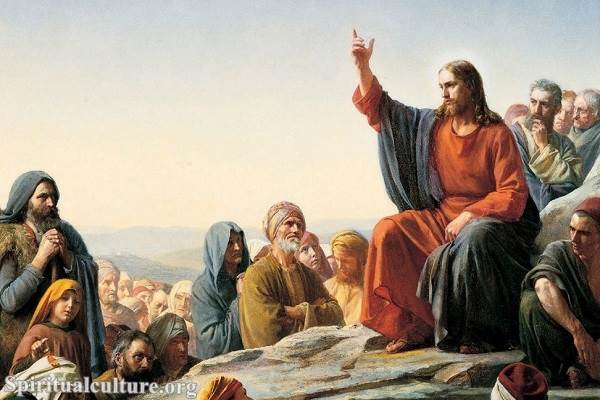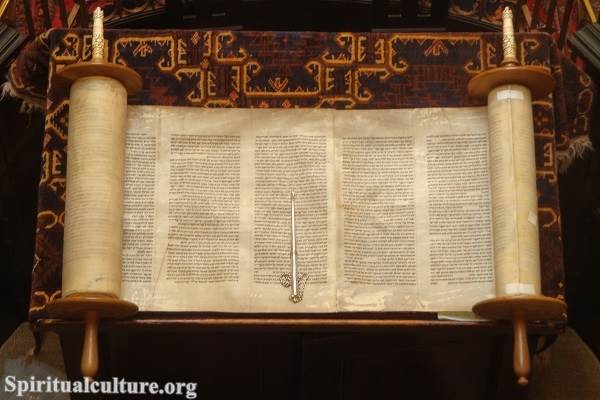From the fires of Sinai to the quiet whisper of prayer, the idea of “covenant” (Hebrew: brit) pulses at the heart of Judaism. It is more than a religious term. It is a relationship, a binding promise, and a sacred invitation from God to humanity — specifically to the people of Israel. But what exactly is a covenant? Why has it mattered so much to Jews across millennia? And why does it still matter now, in a world of shifting allegiances and forgotten promises?
As Spiritual Culture, we invite you to journey into this deeply Jewish concept — not just to understand it intellectually, but to feel its enduring weight and wonder. This article explores the roots, forms, and profound meaning of covenant in Judaism, and how it continues to shape identity, ethics, and the human-divine relationship.
The Meaning of Covenant (Brit) in Jewish Thought
A Sacred Bond Between God and His People
The Hebrew word brit means covenant, treaty, or pact. But in the Jewish tradition, it goes far beyond legal formality. A covenant in Judaism is a divinely initiated relationship between God and individuals or the community, sealed with responsibility, promise, and enduring loyalty.
This is not a contract based on equal power. It is a loving and holy bond — where God, the Creator, reaches out to humanity and invites a specific response. Unlike temporary agreements, a covenant is meant to last — even through failure, exile, or doubt.
Covenantal Theology: Central to Jewish Identity
Throughout Jewish sacred texts, especially the Torah and prophetic books, covenant is the core framework through which Israel understands its purpose, its blessings, and even its suffering.
As Rabbi Jonathan Sacks once wrote:
“The concept of covenant is Judaism’s most original contribution to the moral vision of the world. It turns religion from a matter of private salvation into a call to collective responsibility.”
The covenant is not only about what God gives — but about how we live in response.
The Foundational Covenants in the Hebrew Bible
The Covenant with Noah: A Promise to All Humanity
After the flood, God makes a covenant not just with Noah but with all creation:
“I establish My covenant with you: Never again will all life be destroyed by the waters of a flood.” — Genesis 9:11
This covenant is universal. The rainbow becomes its sign — a reminder of God’s enduring mercy and the sacredness of life. It is unconditional, asking only that humans uphold basic moral conduct (the “Noahide Laws” in later rabbinic tradition).
The Covenant with Abraham: The Birth of a People
Perhaps the most foundational brit in Jewish tradition is with Abraham:
“I will establish My covenant between Me and you and your descendants after you throughout their generations… to be God to you.” — Genesis 17:7
Here, covenant takes a new form — not universal, but particular. God chooses Abraham’s descendants as a people with a mission: to walk with God, uphold justice, and bless the nations.
The sign of this covenant is circumcision (brit milah), still practiced on the eighth day of a Jewish boy’s life.
The Covenant at Sinai: A Nation Becomes a People of Torah
At Mount Sinai, this covenant expands into a full national constitution. God gives the Torah — including the Ten Commandments — and the people respond:
“All that the Lord has spoken we will do, and we will hear.” — Exodus 24:7
This is a mutual agreement — with commandments, rituals, and laws. The people become not just children of Abraham but a covenantal society, bound to live by divine instruction.
This covenant is often seen as conditional: blessings for obedience, consequences for straying. Yet it is also marked by mercy, renewal, and God’s persistent faithfulness.
Covenant as Calling: From Obligation to Devotion
Not Just Laws, But Love
While the Sinai covenant is filled with laws (mitzvot), it is not cold or mechanical. The covenant is rooted in love and divine commitment.
In Deuteronomy, we read:
“The Lord did not set His affection on you and choose you because you were more numerous… but it was because the Lord loved you and kept the oath He swore to your ancestors.” — Deuteronomy 7:7-8
Love precedes law. The covenant is a relationship of the heart — a marriage, a partnership, a sacred trust.
The Prophets and Covenant Faithfulness
When the people stray, the prophets don’t merely condemn lawbreaking — they cry out like wounded lovers. Covenant infidelity is spiritual adultery, and return (teshuvah) is the path to renewal.
Jeremiah famously envisions a new covenant:
“I will put My law in their minds and write it on their hearts. I will be their God, and they will be My people.” — Jeremiah 31:33
This promise of an inward, living covenant would later echo in Christian and other traditions — but for Jews, it remains a prophetic call to deeper transformation within the covenantal life.
Covenant in Jewish Practice Today
Circumcision and Covenant Memory
Every Jewish male, through circumcision (brit milah), enters the Abrahamic covenant. It is not just a ritual, but a sign of identity — a reminder that even the body is marked by divine calling.
This moment connects each generation to Abraham, to Sinai, and to the living story of Israel.
Shabbat, Torah, and Mitzvot: Living the Covenant
Shabbat observance, Torah study, prayer, and acts of kindness are all daily expressions of covenantal life. To keep mitzvot is not legalism, but love-in-action. As it is said in Pirkei Avot:
“The world stands on three things: Torah, service, and acts of lovingkindness.”
These are covenantal pillars — upholding a world infused with holiness.
Covenant and Jewish Ethics
Jewish social ethics — justice for the poor, hospitality to the stranger, care for the earth — all flow from the covenant. God’s covenant calls not just for worship, but for responsibility.
As Micah says:
“What does the Lord require of you but to act justly, love mercy, and walk humbly with your God?” — Micah 6:8
This is the covenant lived out in public and private life.
Covenant and the Jewish Soul: Why It Still Matters
Identity Rooted in Relationship
In a fragmented world, the covenant gives Jews a deep spiritual anchor. It says: You are not adrift. You are bound — not by chains, but by a promise. Not by fate, but by purpose.
A People, Not Just a Faith
The Jewish covenant is not merely theological. It is communal. One is born into it, and every Jew carries the story. Even those who struggle with faith are still part of the covenantal people — still called, still loved.
This is why covenant sustains identity through exile, persecution, and assimilation. It is written not just on scrolls, but on souls.
A Mirror for Humanity
While the Jewish covenant is particular, its themes are universal: relationship, promise, moral duty, divine love. It speaks to every soul that seeks meaning beyond self — to those who long to belong, to serve, to be known.
Reflect and Reimagine
The covenant in Judaism is more than an ancient pact. It is a living truth. It tells of a God who chooses relationship over distance, and a people who — though broken, scattered, and questioning — still carry the fire of that first promise.
If you are Jewish, the covenant calls you to remember who you are.
If you are not, the covenant invites you to listen — to see in this sacred bond a glimpse of the divine-human story: where love is loyal, and holiness is found in faithfulness.
At Spiritual Culture, we believe this ancient word — brit — still speaks. And perhaps in hearing it, we are all reminded that life is not a random drift, but a calling to live in covenant with each other, and with the Eternal.



So right now, there is a global argument, which I do not agree with, that the Jews of today are not the same Jews that God made that his covenant with so we, as Christians, should not support Israel because of that.
Can you explain why this seems to even be an issue? As I said before I’m not in agreement with it. I am a Zionist through and through and I love Israel and its people because they belong to God.
Thank you for sharing that with such sincerity. The debate you mentioned usually comes from how people interpret the word “Israel” in Scripture — whether it refers to the physical descendants of Abraham or the spiritual people of God in Christ.
Some believe that the Church has replaced Israel (replacement theology), while others — like yourself — hold that God’s covenant with the Jewish people is everlasting. Biblically, both truths connect: the covenant with Abraham remains (Genesis 17:7–8), and through Christ, Gentiles are grafted into that same promise (Romans 11).
So the disagreement isn’t really about rejecting Israel, but about how to understand God’s continuing work with His chosen people.
Loving and blessing Israel is still in harmony with God’s heart:
“I will bless those who bless you.” (Genesis 12:3)
Thank you for standing with Israel in faith and love — your conviction reflects the compassion and covenant faithfulness of God Himself.